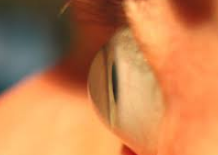Scleral Lenses:
Jupiter or Prose Scleral Lenses For
Dry Eye (or Keratoconus).
How Much do Scleral Lenses Cost?
How Much does the Jupiter or Prose Scleral Lens Cost?
Scleral Lenses can help treat severe dry eye.
The cost of getting a Prose Scleral Lens is about $5000-$10,000 not including room and board to fly to particular centers who fit the Prose Lens.
We use the Jupiter Scleral Lens which achieves similar results in most patients, though I do not see any randomized controlled trial to compare Prose and Jupiter Scleral Lenses yet.
More information on Scleral Lenses Below.
We charge between $2200-2500 for a Scleral Lenses for our patients. We have had years of experience using scleral lenses for Keratoconus patients with excellent results. We have been using scleral lenses for our dry eye patients now for two years with excellent results as well. Some insurance will cover scleral lenses if we can show an improvement in vision as a medical necessity. Some insurances will not cover them no matter what documentation we provide.
We refund 80% of the cost of the scleral lens (approximately $1200-1500) if a patient is unhappy with the lens and returned within 90 days of purchase. The fitting cost (approximately $1000) is not refundable.
Scleral Lens on the Left Compared to Rigid Gas Permeable on the Right
Several corneal abnormalities, such as corneal degenerations, such as Keratoconus noted below, ectasias, dystrophies, keratoconjunctivitis sicca and severe dry eye can result in decreased visual acuity
due either to irregular astigmatism or corneal opacities.
due either to irregular astigmatism or corneal opacities.
The
management of these patients includes many options as discussed in previous posts (https://drcremers.com/2016/10/best-treatment-for-dry-eyes-eye-redness.html) but it may also include fitting corneal rigid contact lenses. However, fitting these lenses in
advanced cases can be challenging as a result of lens decentration,
dislocation, or pain/discomfort and cost: the Prose is expsensive. In some cases, surgery may be the next option for those
patients that cannot be fit or are unable to tolerate contact lenses.
Modern scleral lenses offer a new alternative for patients who have
not had success with other lens types.
management of these patients includes many options as discussed in previous posts (https://drcremers.com/2016/10/best-treatment-for-dry-eyes-eye-redness.html) but it may also include fitting corneal rigid contact lenses. However, fitting these lenses in
advanced cases can be challenging as a result of lens decentration,
dislocation, or pain/discomfort and cost: the Prose is expsensive. In some cases, surgery may be the next option for those
patients that cannot be fit or are unable to tolerate contact lenses.
Modern scleral lenses offer a new alternative for patients who have
not had success with other lens types.
Scleral Lenses were first
reported in 1888 by Adolph Fick and have now been reintroduced in
newer, better tolerated materials. The manufacturing process for scleral lenses has
been improved, and larger lens diameters can now be accurately
reproduced and more comfortable.
reported in 1888 by Adolph Fick and have now been reintroduced in
newer, better tolerated materials. The manufacturing process for scleral lenses has
been improved, and larger lens diameters can now be accurately
reproduced and more comfortable.
Scleral Lenses are customized to fit your eye as perfectly as possible: diameter, base curve, peripheral curve and power are carefully measured for each eye.
Scleral lenses are large diameter gas permeable lenses that rest
beyond the limits of the cornea on the sclera. Successful fitting of
scleral lenses may defer surgical intervention and decrease the risk
of corneal scarring. Scleral lenses may be indicated for primary
and secondary corneal ectasias, like Keratoconus, post-corneal transplants, and severe dry eye patients.
Scleral lenses are large diameter gas permeable lenses that rest
beyond the limits of the cornea on the sclera. Successful fitting of
scleral lenses may defer surgical intervention and decrease the risk
of corneal scarring. Scleral lenses may be indicated for primary
and secondary corneal ectasias, like Keratoconus, post-corneal transplants, and severe dry eye patients.
Sandra Lora Cremers, MD, FACS
Curr Opin Ophthalmol. 2015 Jul;26(4):319-24. doi: 10.1097/ICU.0000000000000171.



